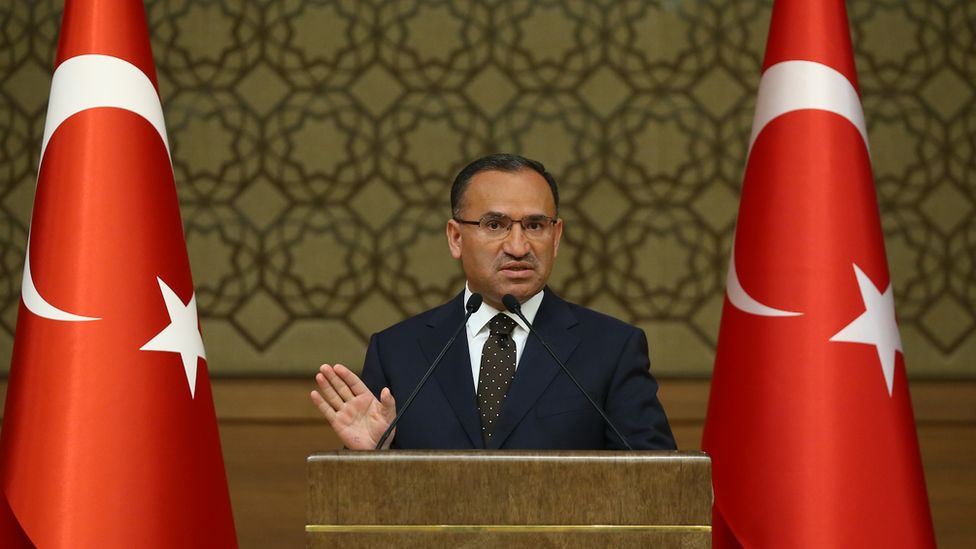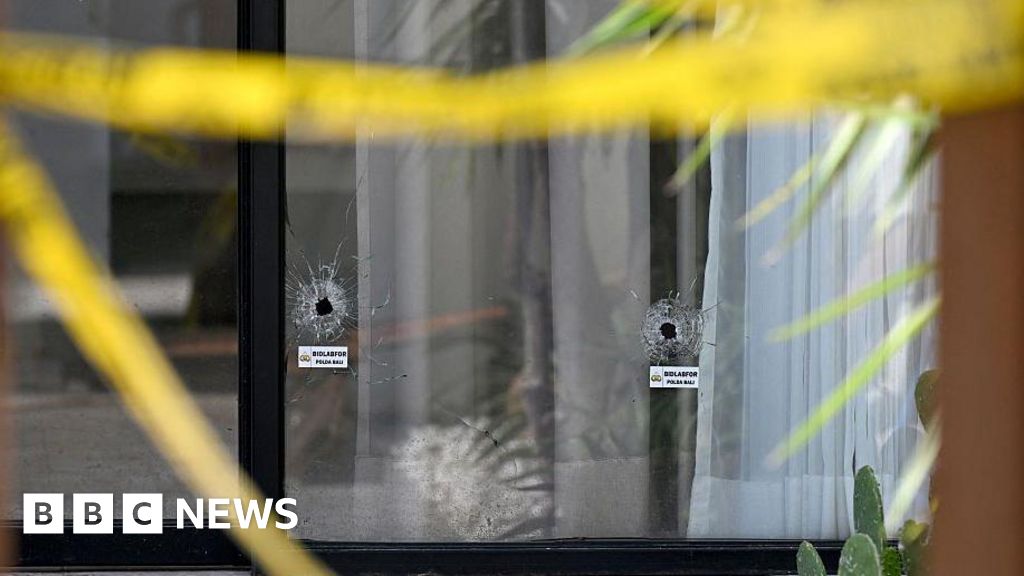ARTICLE AD BOX
By Yaroslav Lukov
BBC News
 Image source, Getty Images
Image source, Getty Images
Turkish Justice Minister Bekir Bozdag said Ankara wanted 12 suspects from Finland and another 21 from Sweden
Turkey says it will now be pushing for the extradition of 33 "terror" suspects from Finland and Sweden, under a deal that lifted Ankara's objections to the two Nordic states' bids to join Nato.
Turkey would ask them to "fulfil their promises", the justice minister said.
Ankara has accused both Finland and Sweden of hosting Kurdish militants.
The Nordic states agreed late on Tuesday to "address Turkey's pending deportation or extradition requests of terror suspects expeditiously".
Finland and Sweden declared their intention to join the 30-member Western defensive alliance in May, in response to Russia's invasion of Ukraine.
Turkey initially threatened to veto their application but after four hours of talks at the Nato summit in Madrid the three countries reached a compromise. Nato leaders are expected to officially invite Finland and Sweden to become members before the end of the meeting.
Russia condemned the expansion of Nato as a "strictly destabilising factor". "The Madrid summit affirms the bloc's course at aggressive containment of Russia," Deputy Foreign Minister Sergei Ryabkov was quoted as saying by Interfax news agency.
"We will seek the extradition of terrorists," said Justice Minister Bekir Bozdag.
He called on Finland to hand over six members of the Kurdistan Workers Party (PKK) and another six from the movement of exiled Turkish cleric Fethullah Gulen.
Turkey also wants 11 PKK members and 10 Gulenists to be extradited from Sweden.
The PKK, formed in the late 1970s, launched an armed struggle against the Turkish government in 1984, calling for an independent Kurdish state within Turkey. Meanwhile, the Gulenists are blamed by Turkey for a failed coup against President Recep Tayyip Erdogan in 2016.
While the PKK is considered a terrorist group by the EU, US and UK, they do not view the Gulen movement in the same light. Finland and Sweden have so far made no public comments on the Turkish request.
Under Tuesday's trilateral memorandum, Helsinki and Stockholm agreed to "prevent activities of the PKK" and not support Gulenists as well as two Kurdish militant groups based mainly in Syria - the YPG and PYD.
The two countries also pledged to lift their restrictions on selling weapons to Turkey.
Finnish President Sauli Niinisto said the three countries signed the deal "to extend their full support against threats to each other's security", while Swedish PM Magdalena Andersson said it was "a very important step for Nato".
President Erdogan's office said it "got what it wanted". But the deal was condemned by Kurdish activists.
Amineh Kakabaveh, a Swedish lawmaker of Iranian Kurdish descent, said it was a "black day" for Sweden. She argued that Stockholm was simply sacrificing the Kurds.
By joining Nato, Sweden will end over 200 years of non-alignment. Finland adopted neutrality following a bitter defeat by the Soviet Union during World War Two.

 2 years ago
65
2 years ago
65








 English (US) ·
English (US) ·